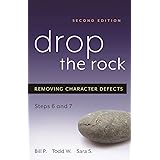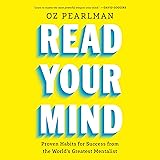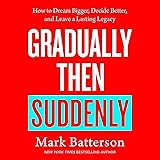In our fast-paced lives, it is common for individuals to feel disconnected from their true selves, often moving through daily routines on what seems like autopilot. This sense of detachment can lead to repeated cycles of dissatisfaction, whether in relationships, career, or personal well-being. However, a profound solution exists for those seeking a more meaningful and intentional existence: cultivating deep self-awareness. As explored in the video above, achieving a clear understanding of one’s inner workings is paramount for genuine personal growth and lasting fulfillment. It is often observed that a lack of self-understanding can contribute to stagnation, preventing individuals from reaching their full potential.
The journey toward enhanced self-awareness involves more than just a surface-level glance; it necessitates a deep, honest introspection into one’s motivations, emotions, and behaviors. By embracing this practice, a path is cleared for significant improvements in all areas of life. This deeper understanding is not merely about identifying external traits but about discerning the intricate tapestry of thoughts and feelings that reside within. Truly knowing oneself becomes the bedrock upon which a more authentic and purposeful life can be constructed.
Understanding the Essence of Self-Awareness
To be genuinely self-aware is fundamentally about possessing the capacity to perceive oneself clearly from an internal perspective, rather than relying solely on external appearances or societal reflections. While a mirror might reveal one’s outward form, it is the internal ‘mirror’ of self-awareness that allows for evaluation, subsequent change, and ultimate improvement. This internal scrutiny facilitates a continuous process of becoming better, aligning one’s actions with their core values and aspirations. Imagine, for instance, a situation where an individual consistently reacts impulsively; self-awareness permits an examination of the underlying triggers, paving the way for more measured responses.
This process of internal examination often begins with asking crucial questions about oneself. It is not enough simply to acknowledge an emotion or a behavior; the deeper inquiry into ‘why’ these patterns exist is essential. Through this questioning, a more comprehensive understanding of one’s internal landscape is developed. Consequently, patterns of behavior, both beneficial and detrimental, begin to emerge with greater clarity, offering opportunities for targeted personal development. Self-awareness, therefore, becomes a dynamic tool for personal evolution.
The Transformative Power of Persistent Self-Questioning
A significant component of developing strong self-awareness involves the habit of questioning everything, particularly one’s own thoughts and actions. This consistent inquiry serves as a powerful catalyst for gaining deeper insights into one’s internal motivations and external reactions. When individuals consistently ask themselves “why,” they begin to uncover the hidden drivers behind their choices and emotional responses. This rigorous self-interrogation extends beyond immediate feelings, delving into the historical context and foundational beliefs that shape one’s current reality.
For example, instead of merely acknowledging feelings of frustration, one might ask, “Why am I feeling this particular way right now?” This question can then lead to further investigation into recent events, past experiences, or even deeply ingrained patterns of thought. By fostering a desire to know and understand more, individuals are empowered to initiate meaningful changes in their lives. This continuous process of questioning is not about self-doubt, but rather about cultivating a rich, nuanced comprehension of one’s own existence, thereby promoting growth and greater personal clarity.
Breaking Free from Autopilot: Recognizing Unconscious Patterns
Many individuals are found to navigate their lives primarily in an unconscious state, performing actions and making decisions without truly understanding the underlying reasons. This phenomenon, often described as living on ‘autopilot,’ means that a significant portion of one’s life is governed by subconscious ‘records’ that play repeatedly, dictating behavior. This automatic mode of operation can manifest in various recurring issues, such as engagement in toxic relationships, instability in employment, or difficulty maintaining friendships. It is observed that these patterns persist because the individual rarely pauses to interrogate the cycle.
Consider the scenario where someone repeatedly finds themselves in unhealthy romantic partnerships. Without self-awareness, the individual might attribute these failures to external factors or bad luck. However, by asking “Why am I consistently drawn to these types of relationships?” or “What beliefs about myself or others am I carrying?”, a deeper, often uncomfortable truth may be uncovered. This conscious questioning challenges the unconscious programming, allowing for the identification and eventual alteration of destructive patterns. Consequently, one can begin to dismantle the ‘autopilot’ and take deliberate control over their life’s direction, fostering healthier outcomes.
Embracing Radical Honesty with Yourself
A crucial pillar of developing profound self-awareness is the willingness to be completely honest with oneself, even when the truths uncovered are challenging or unappealing. This involves taking a brave, deep dive into one’s subconscious mind and heart, exploring the complex interplay of thoughts, emotions, and past experiences. The objective here is not to judge what is found, but simply to observe and acknowledge it without defensiveness. It is often believed that true growth can only begin when one can candidly admit their inner realities.
Imagine, for instance, an individual experiencing intense jealousy towards a friend’s success, a feeling that might typically be suppressed or rationalized away. Radical self-honesty compels one to confront this feeling directly, acknowledging it as jealousy rather than excusing it as concern or envy. This acceptance allows for a constructive response, such as openly communicating with the friend or exploring the root causes of insecurity. When one is transparent with themselves, the opportunity for genuine self-correction and improved interpersonal dynamics becomes readily available, transcending superficial interactions. This honesty serves as a powerful tool for personal liberation.
Relationships as Mirrors: Seeing Yourself Through Others
Personal relationships are frequently described as powerful mirrors, reflecting aspects of ourselves that might otherwise remain unseen or unacknowledged. Through interactions with others, individuals are presented with opportunities to observe their own behaviors, reactions, and emotional responses in real-time. This dynamic is particularly potent in intimate relationships, where the close proximity and emotional investment can illuminate both strengths and weaknesses. It is often stated that relationships, in their truest form, demand a level of maturity precisely because they continuously reveal who we are.
When criticism is offered, whether from a partner, friend, or colleague, a lack of self-awareness can lead to defensiveness or a feeling of being attacked. However, for those who are self-aware, such feedback is often processed differently; it is viewed as potentially valuable information rather than a personal affront. For example, if a partner points out a tendency toward impatience, a self-aware individual might consider the observation, reflecting on instances where impatience was indeed present. This open reception of feedback, rather than immediate dismissal, fosters personal growth and strengthens relational bonds. It allows individuals to move past ego and embrace opportunities for self-improvement.
The Essential Role of Solitude and Stillness
In a world brimming with constant distractions, the deliberate practice of seeking solitude and stillness is often overlooked yet is profoundly vital for cultivating deep self-awareness. Stepping away from the noise of external influences and the demands of social interaction creates an essential space for inner reflection. This deliberate withdrawal allows one to truly hear their own thoughts, understand their feelings, and reconnect with their core identity without the influence of others. Many individuals, however, inadvertently use busyness or constant company to avoid this necessary introspection.
Consider a situation where someone always feels the need to be surrounded by friends or constantly engaged in activities. While social connection is important, if it becomes a continuous avoidance mechanism, it can prevent crucial self-discovery. Solitude offers an opportunity to ask fundamental questions such as, “Who am I when no one else is around?” or “What truly brings me joy or discomfort?” It is within these quiet moments that one can critically assess their life path, identify areas needing attention, and clarify their genuine desires. Consequently, intentional periods of being alone are not about loneliness but are powerful instruments for profound personal insight.
Defining Your Internal Compass: Who, Where, What?
To truly unlock one’s potential and create a fulfilling life, it is crucial to answer three fundamental questions that serve as an internal compass: “Who am I?”, “Where am I?”, and “What do I want?”. These inquiries extend beyond superficial roles or current circumstances, delving into the very essence of one’s being and future aspirations. Without clear answers to these questions, individuals can often feel directionless, experiencing a sense of mediocrity or lacking genuine appreciation for their accomplishments. It is often observed that a life well-lived begins with a clear internal vision.
The “Who am I?” question probes one’s core identity, moving beyond professional titles or familial roles to explore personal values, passions, and unique characteristics. Subsequently, “Where am I?” requires an honest assessment of one’s current life situation, including relationships, career, and personal growth trajectory. Finally, “What do I want?” compels individuals to articulate specific short-term, mid-term, and long-term goals, both personally and professionally. Imagine if someone clearly understood their core values, their present position, and their future desires; decisions would be made with much greater clarity and purpose. A lack of this clarity is often linked to an inability to set meaningful goals, which can perpetuate a cycle of discontent.
Actionable Steps for Cultivating Self-Awareness
Developing greater self-awareness is an ongoing journey that benefits from consistent, intentional practices. For those ready to embark on this path, several actionable steps can be integrated into daily life to foster deeper self-understanding. These practices are designed to encourage introspection and honest self-assessment, moving individuals away from unconscious living toward more deliberate and fulfilling experiences. Implementing these steps systematically can lead to transformative insights.
Firstly, journaling is highly recommended; regularly writing down thoughts, feelings, and reactions helps to externalize internal processes and identify recurring patterns. Secondly, engaging in mindfulness and meditation practices can significantly enhance one’s ability to observe thoughts and emotions without judgment, thereby strengthening the inner ‘mirror.’ Thirdly, actively seeking feedback from trusted friends or mentors can provide external perspectives that complement self-reflection. Finally, periodically asking oneself the guiding questions—”Who am I at my core?”, “What are my likes and dislikes?”, “Where do I want to be in one, five, or ten years?”, and “Who do I want in my life?”—serves as a powerful framework for continuous personal evaluation and growth. It is through these deliberate actions that a truly aware and intentional life is constructed.








